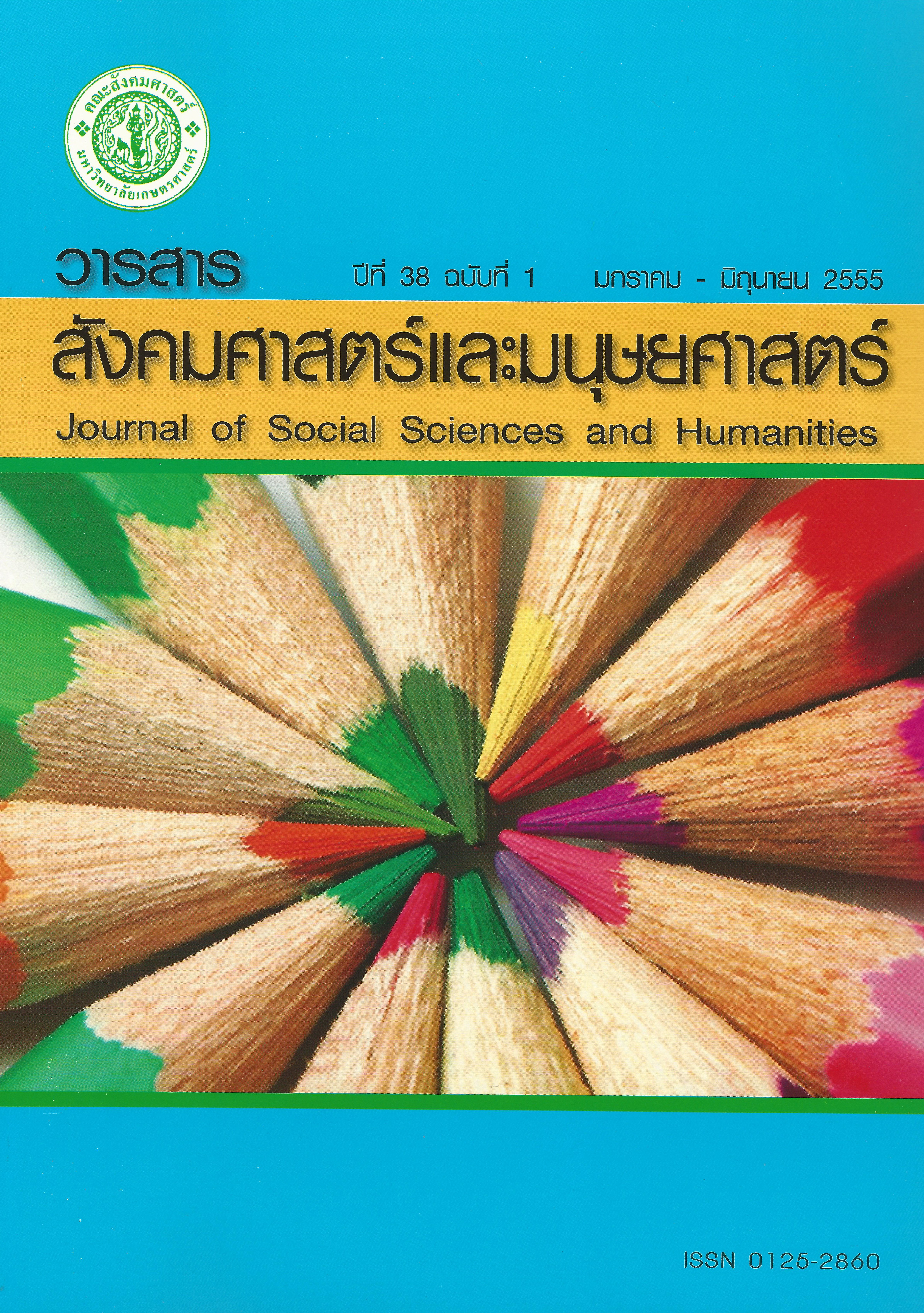นโยบาย "ประชานิยม" กับการสร้าง/ลด และ "ความไม่เป็นธรรม" ทางเศรษฐกิจ: ข้อเสนอเชิงประจักษ์ว่าด้วยการแบ่งสรรผลประโยชน์ในธุรกิจค้าข้าวของไทย
Main Article Content
บทคัดย่อ
The "Populism" Policy and Building/Diminishing Economic "Inequality" and "Unfairness": Empirical Suggestion on Pork-Barrel in Thailand's Rice Trading Business
This research aims to analyze two relationships: firstly, between the first difference of world market prices of rice and that of domestic market prices of rice; and secondly, between the first difference of domestic market prices of rice and that of domestic market prices of paddies. The objective is to demonstrate the pork-barrel, that is, the benefit sharing among different groups of people, in Thailand's rice trading business among the stakeholders, namely, the rice farmers, the rice millers, and the exporters, under the conduct of the government before and after its populism policy, involving the regimes of paddy pledging and the rice farmers' income guarantee, which has created the pork-barrel in a way that has built or diminished economic inequality as well as unfairness. The study further compares the outcomes of the implementations of both patterns of populism policy so as to finally formulate a policy suggestion. The researchers use time series data of world market prices of rice, domestic market prices of rice, and domestic market prices of paddies, and transform them to the pattern of first differences applying the first-difference method. Next, regression analysis is applied to the transformed data.
Research results from the regression analysis indicate that both relationships under the study have the same direction at the statistical significance level of 0.01 both before and after the implementation of populism policy. The benefit sharing (pork-barrel) structural model among rice farmers, rice millers, and exporters, before the policy implementation indicates a proportion of 68-2-30, whereas it becomes 17-22-61 after the implementation. After classifying the populism policy as two different regimes of paddy pledging and rice farmers' income guarantee, it is observed that the benefit sharing structural model for the paddy pledging scheme is 17-22-61, which shows a tendency to generate deeper economic inequality and unfairness than those under the rice farmers' income guarantee scheme, which seems to mitigate such problem at the benefit sharing of 87-4-9.


